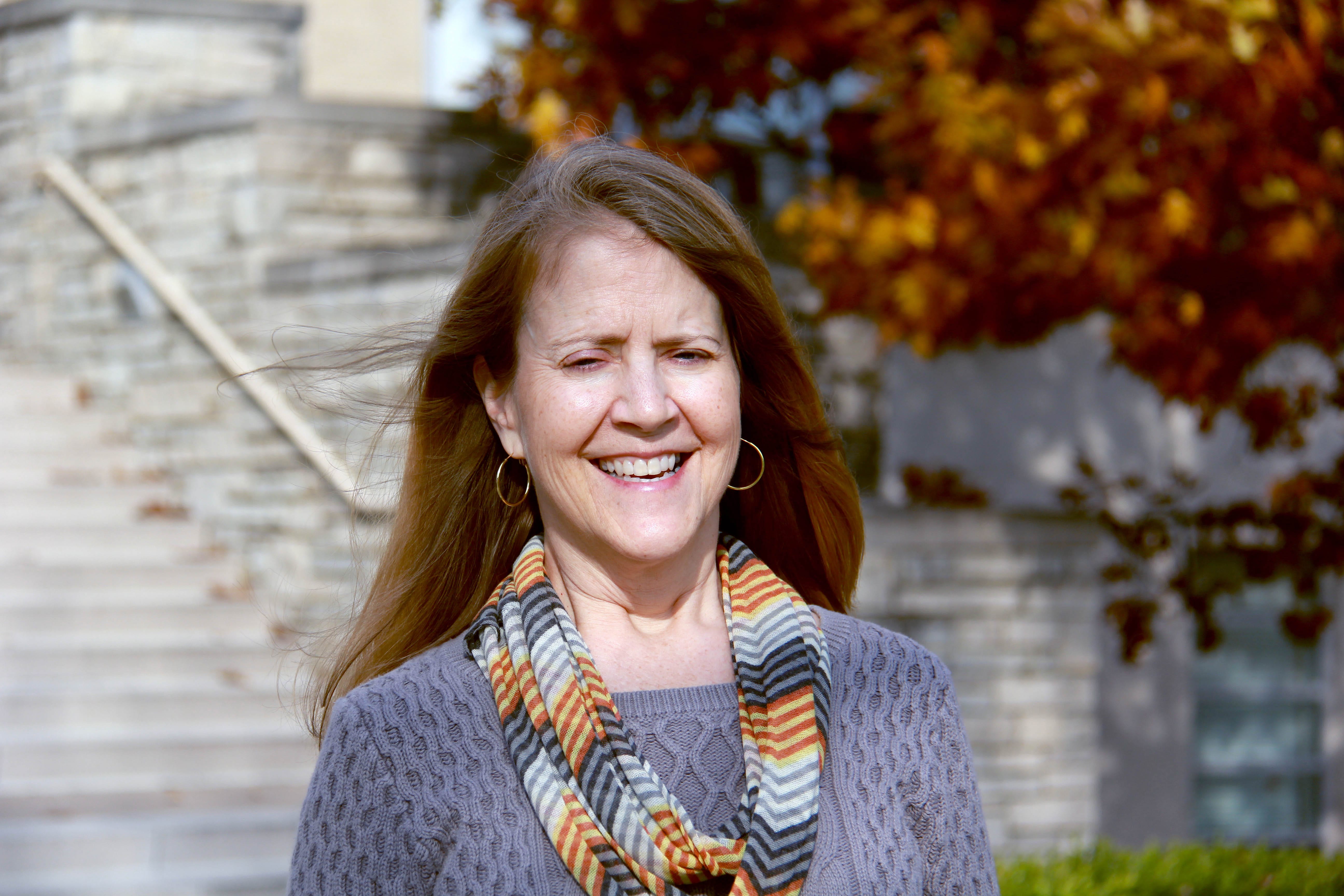After 30 years away, Sandra Harris returned to her hometown of St. Louis this fall to serve as library director for Maryville University. Most recently, she worked as executive director of the Desert Caballeros Western Museum.
Harris graduated from Washington University with an undergraduate degree in psychology and sociology with a Spanish minor. She is also a graduate of the museum studies program at Arizona State University and has worked in Arizona, Nevada, California and North Carolina. She held various positions at the Arizona State Capitol Museum, The Liberace Foundation, The Neon Museum, Phoebe A. Hearst Museum of Anthropology at UC Berkeley and the Nasher Museum of Art at Duke University.
Harris is passionate about sharing culture and knowledge with students, and she is keen on using technology to further learning and education.
“I want to learn something new every day,” she says.
The University Library position encompasses much of what Harris has done throughout her career, including immersive learning and developing and conserving collections, while making them accessible to all audiences.
“When I came to meet everyone and to hear about the philosophy behind Maryville’s forward-thinking — being ready to shake things up and redefine education — I absolutely knew I wanted to be here,” says Harris.
Harris grew up in the performing and creative arts studying dance and music and singing in choirs. She was also drawn to teaching and learning. She was unsure, however, how to make a living encompassing all of her interests. She tried teaching high school, marching band color guard instruction and managing art galleries. But it was not until graduate school, when she enrolled in a museum studies class, that she found her passion.
“After taking that class, I felt that all of the things I loved could be under one roof. I love business; I love managing money and thinking about running a place. I love facilities, the public and learning, collections, history and technology,” says Harris. “It took a while, but after all the amazing experiences I was having interning at different museums and meeting new and interesting people I said, ‘This is it.’”
Harris considers herself a huge movie fan and a foodie and is happy to be back in St. Louis to explore both.
Library Innovations
Harris says her new job is never dull. The most significant questions facing libraries today, she says, are how to manage physical and digital resources and how a space can be designed to encourage new ways of learning. Maryville’s library already offers a variety of flexible spaces for student groups to meet, along with the technology tools they need to collaborate.
“We want to keep creating spaces where people can create together and make connections. Having that happen in a library makes perfect sense to me,” says Harris.
Introducing new resources, continually improving learning formats and providing access to information are not new to Harris, who was tasked with those same challenges in her museum work. However, there are some aspects where museums differ from university libraries, such as providing non-programmed spaces for people to socialize and learn jointly.
“In museums, we think a lot about how we use the space. When you come into the Library, you might see small changes as we analyze use,” says Harris. “The other piece is that in museums we did so much public programming, and we are already thinking about ways to invite people in not only to study or have group meetings, but also to augment what the campus is doing with experiences and programs.”
Leadership Role
Harris considers herself a multidisciplinary thinker. She has embraced creative leadership in both her professional and personal life.
“What I mean when I say ‘creative leadership’ is that I don’t have a single model, and one model doesn’t work in all situations or with all people,” says Harris. “I like to think of myself as someone very analytic, who is always trying to get to know the people involved in a certain scenario and figure out the best way to lead that particular project or person. I don’t think one size fits all.”
Harris says people can expect a physical expansion of the library building and new additions to functions within it in the coming years. To prepare for such development, brainstorming sessions will be held to help envision the growth.
Harris’ favorite research tool is the library database. Going beyond a Google search and seeing everything available on a specific topic or author is fascinating, she says. As a poetry aficionado, her favorite writers are Dorothy Parker and Edgar Allan Poe.
“If I could make everyone in the world read a book it would be Zen and the Art of Motorcycle Maintenance by Robert M. Pirsig,” says Harris. “It talks about growing up as an individual, growing up in society, societal trends, technology trends, and the arts and sciences. The main concept of that book is that all disciplines live together, so how do you find your place as an individual in the world?”
 Sandra Harris, library director for Maryville University.
Sandra Harris, library director for Maryville University.